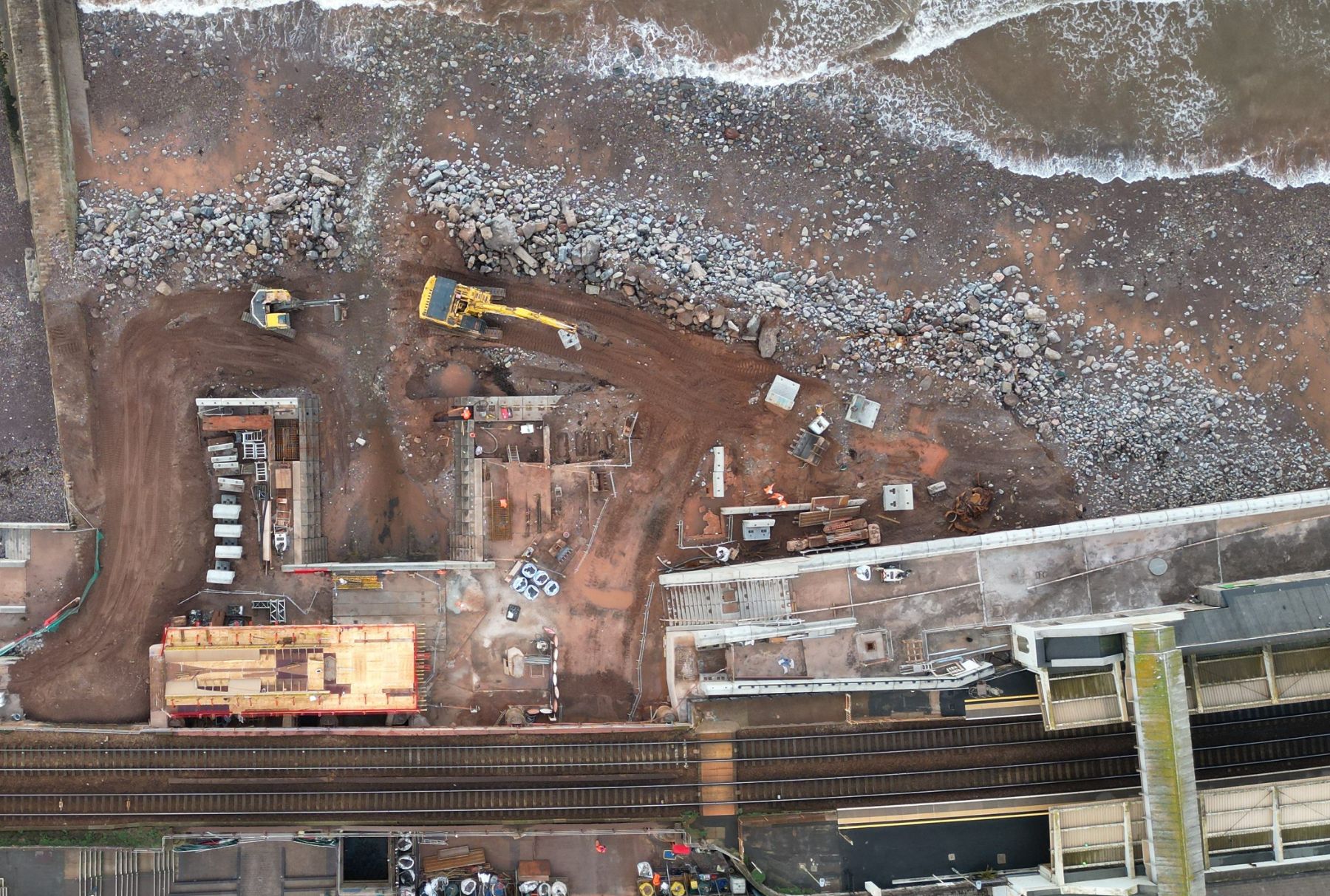Tackling the risks of extreme weather for rail travel
A partnership called the “Weather Academy” has been created between our University, the Met Office and Network Rail to improve understanding of the risks of extreme weather for rail travel.
3 November 2022
A partnership called the “Weather Academy” has been created between our University, the Met Office and Network Rail to improve understanding of the risks of extreme weather for rail travel.
To launch the Weather Academy, in October Newcastle University hosted a pilot workshop to explore how cutting-edge research can be implemented to reduce the risks from extreme weather. The workshop provided a unique opportunity to bring together technical experts, researchers and experienced industry practitioners. There were lectures from subject matter experts and academics, whilst practitioners were given an opportunity to ask questions and share the challenges they face.
The robust discussion during the pilot workshop prompted a flurry of ideas and opportunities to utilise academic methods in response to real world problems.
The week-long pilot Weather Academy cohort brought together rail operations staff, asset engineers and meteorology experts to explore how we run a safer, more reliable service during adverse and extreme weather. The workshop was an opportunity to work through practical case studies, interactive tuition, and scenario-based exercises to challenge and tangibly improve how we keep passengers moving.
The pilot workshop is a product of effective collaboration between Newcastle University, Network Rail, the Met Office and MetDesk Ltd. All speakers brought the content to life and supported people to improve knowledge and skills that they can immediately apply back in the 'real world'.
Hayley Fowler, Professor of Climate Change Impacts at the School of Engineering, said: “We are delighted to launch the Weather Academy here at Newcastle University. This partnership between Newcastle, Network Rail and the UK Met Office provides an opportunity to improve Network Rail and the wider transport industry’s ability to deal with extreme weather events, producing a safer and more resilient railway.”
PhD researcher, Tess O’Hara, added: “The climate is changing. Extreme weather events including strong winds (as seen during Storm Arwen in 2021), flash flooding (e.g. the Toon Monsoon in 2012) and the record breaking temperatures experienced this year are forecast to become the new normal. Experts from Newcastle University are working with industry to help reduce the risk to life from extreme weather.”
Adverse Weather and Related Hazards
Dame Julia Slingo, lead author of the Weather Advisory Task Force report, said: “This is a landmark event. This is the first time, in the transport sector at least, that we got people together to think about how you manage the considerable risks to operations that you face from adverse weather and related hazards.”
The delivery of this cohort marks the beginning of a step change for the industry toward how we deliver safety for our passengers and freight users and how we continue to build our collective weather resilience.
Matthew Shelton, Network Rail Asset Engineer said: “I found the workshop illuminating, fascinating and extremely useful. The level of information provided enhanced my knowledge and broadened my understanding of several critical areas of the business. I will be a more effective, more aware and more empathic risk manager as a result.”
As extreme weather events pose a risk across the transport sector, the Weather Academy will be developed over the coming months with the hope that this innovative way of relating research to industry needs can be adopted more widely.
An expansion of the training available from Newcastle University is under development. Training will provide an understanding of the current science of climate change and impacts. It will be tailored as appropriate, for graduates entering the workplace who will form the future of the sector, and to existing operational managers and to senior leadership who find themselves having to make difficult decisions right now.
To complement the training a showcase of relevant research will be presented in the new year, with an open invitation to all businesses and industry that may benefit from improving ways of working in response to uncertain and extreme weather.
The work at the Weather Academy is aligned with one of the new recommendations by the Joint Committee on the National Security Strategy. In a new report, the Agency has issued a number of recommendations, including the launch of a programme of regional ‘exercises’ to ensure that locally-based responders to crises – such as the emergency services, the NHS and local authorities – can prepare for and respond well to extreme weather events.

